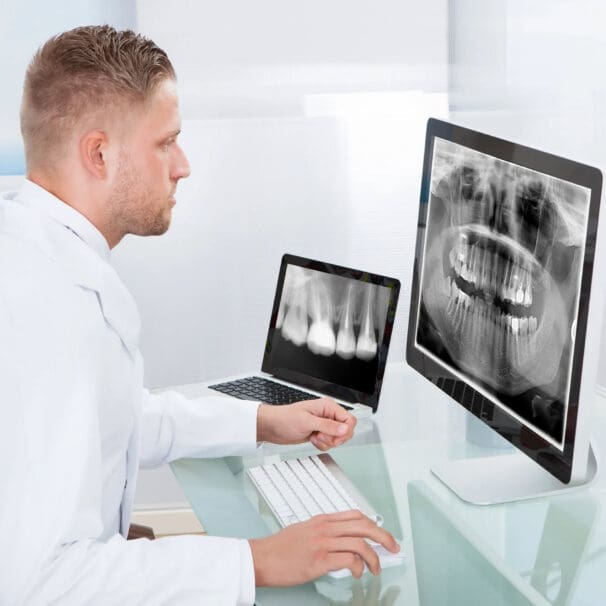HealthProviders DB is a comprehensive database of healthcare providers, including a complete directory of all Oral and Maxillofacial Radiologists.
Dentist Healthcare Taxonomy Code 1223X0008X
As of today, the following are the total number of Oral and Maxillofacial Radiologists nationally, in your State, and near your location.
Select a State below to view the list by State. Additionally, you can narrow the list by city, among other options, from the Filter Panel, which you can open by clicking the vertical ellipses ⋮ in the upper right corner of the app.
Alaska – Alabama – Armed Forces Pacific – Arkansas – American Samoa – Arizona – California – Colorado – Connecticut – District of Columbia – Delaware – Florida – Federated States of Micronesia – Georgia – Guam – Hawaii – Iowa – Idaho – Illinois – Indiana – Kansas – Kentucky – Louisiana – Massachusetts – Maryland – Maine – Marshall Islands – Michigan – Minnesota – Missouri – Northern Mariana Islands – Mississippi – Montana – North Carolina – North Dakota – Nebraska – New Hampshire – New Jersey – New Mexico – Nevada – New York – Ohio – Oklahoma – Oregon – Pennsylvania – Puerto Rico – Palau – Rhode Island – South Carolina – South Dakota – Tennessee – Texas – Utah – Virginia – Virgin Islands – Vermont – Washington – Wisconsin – West Virginia – Wyoming
Medicare
The following are the total number of Radiologists who accept Medicare in your State, the number who have opted out of Medicare, and the total number excluded from participation in Medicare nationwide.
The diagram below shows all the Oral and Maxillofacial Radiologists across the country, represented by blue bubbles. The larger the bubble, the greater the concentration of providers in that area. Red bubbles represent Medicare-excluded providers, with the larger bubbles indicating a higher percentage of excluded providers in that region. You can change the bubble size to be based on exclusions from the Size menu.
What do Oral and Maxillofacial Radiologists do?
Oral and Maxillofacial Radiologists specialize in the use and interpretation of advanced diagnostic imaging techniques to examine the teeth, jaws, and surrounding soft tissues of the head and neck.
Their work is crucial for diagnosing complex diseases and conditions, planning treatments, and helping other dental and medical professionals make informed decisions about patient care.
What they do
Perform and Interpret Imaging: They use conventional and advanced imaging modalities, including:
- Plain films: (conventional X-rays)
- Computed Tomography (CT)
- Cone Beam Computed Tomography (CBCT)
- Magnetic Resonance Imaging (MRI)
- Ultrasound (US)
- Nuclear medicine
Diagnose Conditions: They identify and analyze a range of conditions, including tumors, trauma, infections, temporomandibular joint (TMJ) disorders, and other abnormalities.
Provide Expert Interpretation: They offer specialist interpretation of these complex images to aid in the diagnosis and management of head and neck diseases.
Consult with Other Professionals: They participate in multidisciplinary team meetings to correlate radiographic findings with clinical and pathological data, enhancing the overall diagnostic process.
Guide Interventions: They may perform image-guided interventions to assist in diagnosis and accurately target treatments.
Teach and Conduct Research: They are involved in delivering teaching and conducting research within the field of Oral and Maxillofacial Radiology.
Why are they important
Advanced Diagnostics: They provide detailed information about facial structures, teeth, and soft tissues that may be beyond the scope of general dentistry.
Improved Patient Care: Their expertise helps ensure accurate diagnoses, leading to more effective treatment planning and better patient outcomes.
Specialized Skill: They have undergone specialized postgraduate training to develop expertise in radiation physics, biology, safety, and the interpretation of advanced imaging techniques.

